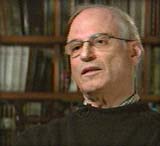Below we reprint excerpts from an article first published in
Haaretz on 23 July, 2007
|
|
|
 There
is nothing that strengthens the self-assurance and the abilities of a
citizen in a democracy to judge and to criticize the government more than
learning, and in particular at the post-secondary level. But the policy of
the recent governments in Israel toward the universities has proven that
here, as in other areas, the government has no interest in investing public
funds in the public's education and in strengthening the public as the
sovereign partner of the institutions of state.
There
is nothing that strengthens the self-assurance and the abilities of a
citizen in a democracy to judge and to criticize the government more than
learning, and in particular at the post-secondary level. But the policy of
the recent governments in Israel toward the universities has proven that
here, as in other areas, the government has no interest in investing public
funds in the public's education and in strengthening the public as the
sovereign partner of the institutions of state.
It is not merely by chance that the ability of the universities in Israel to
impart higher education... has been eroded, as they have had to fight an
ongoing battle against far-reaching cuts. Instead, the universities, which
are no longer worthy of being called institutions of higher learning, have
become schools for research and advanced technical training. [A] student of
chemistry or economics at most of Israel's universities can study almost
nothing except chemistry or economics from the beginning of his first year
until the completion of his doctorate.
Every day, Israeli society pays a heavy price for the "professional"
decisions of people with advanced degrees who are in fact little more than
narrow-minded experts.
In this way we have jurists who have to deal with sex offenders without
having had a single lesson in the social sciences... we have doctors who
were never exposed to a lesson in ethics... we have an army of economists
who have studied almost nothing other than economics, who have never been
exposed... to cultural studies, but who wield the budgetary axe with
intolerable ease when it comes to cultural institutions... which for them
constitute parasitical organizations that lack legitimacy because they are
unable to fund themselves.
[T]oday [Israel] is being led by a government that tries to continue
evading its responsibility to make it possible for all citizens to fulfill
their right and duty to acquire higher education [and which fails] to
provide even adequate lower education in the state school system... A
government unable to view university studies as something other than a
"subsidized commodity." It is therefore no surprise that in this case as
well, they expect the client to pay the full price.
Abandoning the universities to the forces of the market will put an end to
the chances of funding higher learning and be the final nail in the coffin
of the universities as cultural and spiritual centres.
When the spokesmen of the
Shochat committee talk about encouraging excellence in university
institutions, they are referring to professional and research excellence in
the narrow meanings of the words, while neglecting, not unintentionally,
cultural and spiritual excellence and the development of the Israeli human
being. The university professors and their students still have time to
thwart this absurd move, which is in tragic opposition to the vision of
those who formulated university education in Israel - Chaim Weizmann, Martin
Buber, Albert Einstein, Judah Magnes, George Wise, Natan Rotenstreich and
Joseph Ben- David.
The national discourse should focus on how to give higher education an
appropriate position on the list of national priorities.
*Yaron Ezrahi is professor of political science at the Hebrew University of Jerusalem.